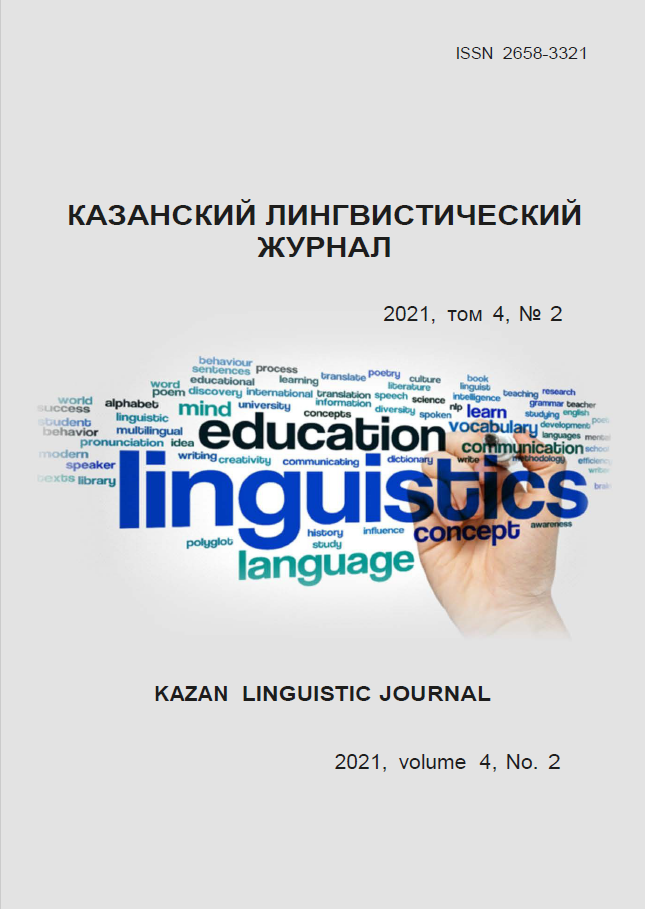Diglossia in the multicultural space оf the Republic of Ghana
Keywords:
indigenous languages, English language, Republic of Ghana, Akan, ethnic group, culture, diglossiaAbstract
The landscape of the Republic of Ghana is described as a multilingual one because of many indigenous and foreign languages spoken at the length and breadth of the country. The study is aimed at identifying the factors that led to the functional semi-literacy, low level of education and social status of a part of the population in the country that experienced the times of colonization. Historical coexistence of the English language and indigenous languages in the Republic of Ghana has led to nativization with some scholars postulating the existence of a new English called Ghanaian English. There is a diglossic relationship between English and the indigenous languages, whereby the English language is usually used in formal communication (school, parliament house, governmental organizations) and indigenous languages are used in the informal communication (home, traditional ceremonies, etc.). However, there is growing tendency of the English language creeping into the informal sector (family). The adherence to the diglossic situation in the country could be a remedy in the preservation of indigenous languages and culture. The analysis of the language space of Ghana revealed the measures undertaken to develop and preserve indigenous languages, the ways of preventing their extinction.
References
References
Adika G.S.K. English in Ghana: Growth, Tensions, and Trends. International Journal of Language, Translation and Intercultural Communication. 1. 2012. P. 151–166.
Agbozo G.E. Language Choice in Ghanaian Classrooms: Linguistics Realities and Perceptions. MPhil. Thesis in English Linguistics and Language Acquisition, Norwegian University of Science and Technology, Trondheim, Norway, 2015.
Anyidoho A. “Shifting Sands: Language policies in Education in Ghana and implementation Challenges”// Ghana Journal of Linguistics 7.2. 2018. P. 225–243.
Bodomo A., Anderson J. & Dzahene-Quarshie J. A Kente of Many Colours: Multilingualism and the Complex Ecology of Language Shift in Ghana. Sociolinguistic Studies, Vol. 3.3. 2009. P. 357–379.
Dako K., & Quarcoo M.A. Attitudes towards English in Ghana. Legon Journal of the Humanities, 28 (1). 2017. P. 20–30.
Ferguson C.A., 1959. Diglossia. Word 15. P. 325–340.
Fishman J. Bilingualism with and without diglossia: diglossia with and without bilingualism. Journal of Social Issues 23 (1). 1967. P. 29–38.
Gocking R.S. The history of Ghana. Greenwood Press, Westport, 2005.
Koranteng L.A. Ghanaian English: A description of its sound system and phonological features. PhD Thesis, Accra, University of Ghana. 2006.
Mireku-Gyimah P.B. “I dey trust you waa”: Pidgin English as a current spoken communication tool at University of Mines and Technology. Ghana Mining Journal, 18(2). 2018. P. 77–86.
Ngula R.S. Hybridized Lexical Innovations in Ghanaian English. Nordic Journal of African Studies 23(3). 2014. P.180–200.
Ofori S.G., Duah I. & Mintah K.C. Exploring the feasibility of a proposed Ghanaian English pronunciation standard. Journal of Education and Practice, Vol. 5, No. 22. 2014.
International knowledge sharing platform. // URL: http://www.iiste.org/Journals/index.php/JEP/article/view/14540 (acsessed: 20/04/2021).
Owu-Ewie C. The language policy of education in Ghana: A critical look at the English-only language policy of education. Selected Proceedings of the 35th Annual Conference on African Linguistics. Somerville, MA: Cascadilla Proceedings Project, 2006. P. 76–85.
Owu-Ewie C. Language, Education and Linguistic Human Rights in Ghana. Legon Journal of the Humanities, 28(2). 2017. P. 151–172.
2010 Population and Housing Census. National Analytical Report. Ghana Statistical Service, May 2013.






